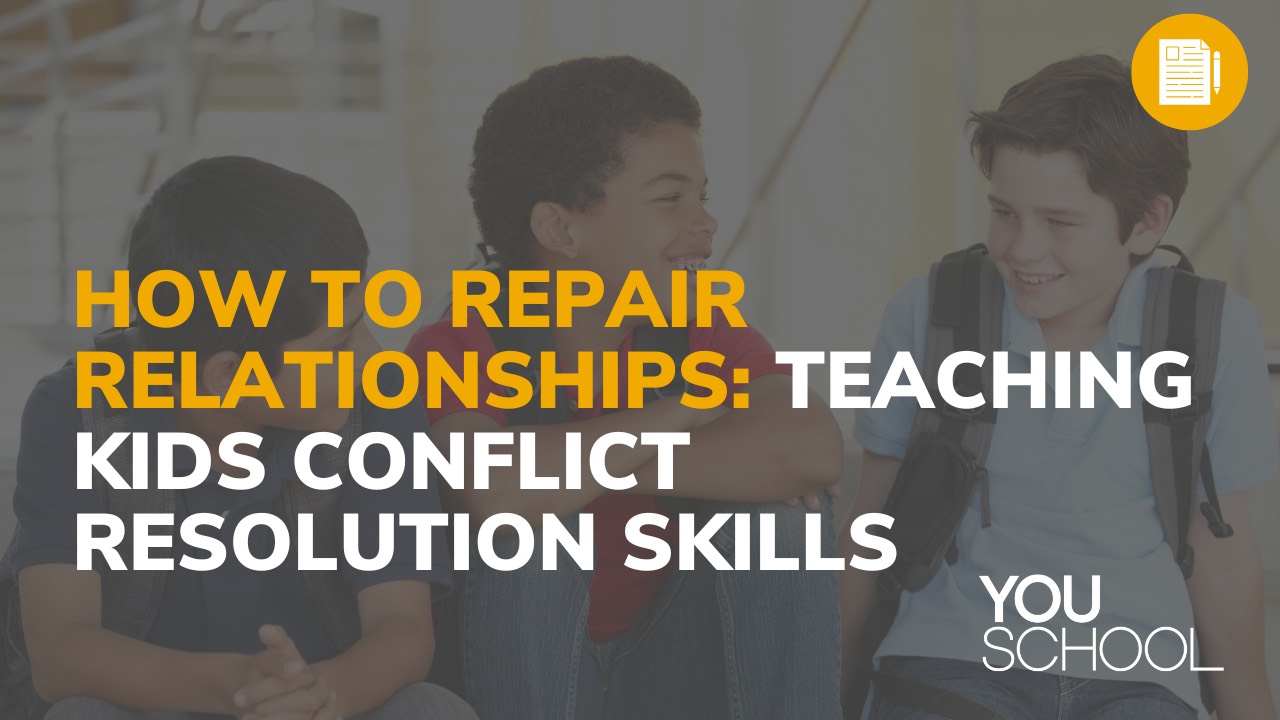How to Repair Relationships: Teaching Kids Conflict Resolution Skills

Every kid is going to face conflict—whether it’s a fight with a friend, a misunderstanding with a teacher, or a tense moment at home. What matters most isn’t whether they avoid conflict altogether (spoiler alert: they won’t), but whether they know how to repair the relationship afterward.
And here’s the truth: conflict resolution isn’t a personality trait. It’s a skill. And it’s one that can be taught, modeled, and practiced at home.
Conflict Is Uncomfortable—But It’s Not the End
One of the most meaningful friendships he ever had nearly ended over a sarcastic comment and a garden hose. What saved the relationship wasn’t pretending it didn’t happen—it was the courage to name the hurt, speak the truth, and repair the rupture.
When kids aren’t taught how to do that, they fall into one of two traps:
-
Avoid conflict and settle for shallow relationships.
-
Ghost the other person when things get hard.
Neither leads to the kind of life most of us hope our kids will have—full of love, belonging, and close friendships.
The 7-Step Repair Plan for Kids (and Grown-Ups)
Here’s a simple roadmap kids can use to handle conflict well:
-
Recognize there’s conflict. Don’t minimize it. Something feels off? That matters.
-
Name the story in your head. What assumptions are you making about the other person’s intent?
-
Own your part. It’s rarely one-sided. Look for where you might have contributed.
-
Take initiative. Don’t wait for the other person to fix it first.
-
Use “I feel…” statements. Be honest, not accusatory.
-
Listen to understand. Let them share their perspective—even if it’s hard to hear.
-
Make a repair plan. That could mean apologizing, agreeing to new boundaries, or giving each other space.
These aren’t just soft skills. They’re life skills. And they’re vital for building lasting relationships.
What Parents Can Do Right Now
Want to teach your kid how to resolve conflict? Start small:
Ask this tonight at dinner:
“Has there ever been a time you had a fight with a friend and worked it out? What did you say or do?”
Let them reflect. Share a time from your own life, too. Then walk through the 7 steps together and ask, “What would that look like if this happened again?”
Keep the tone light, curious, and non-judgy.
Because the truth is, kids can learn conflict resolution—but only if we show them how.
